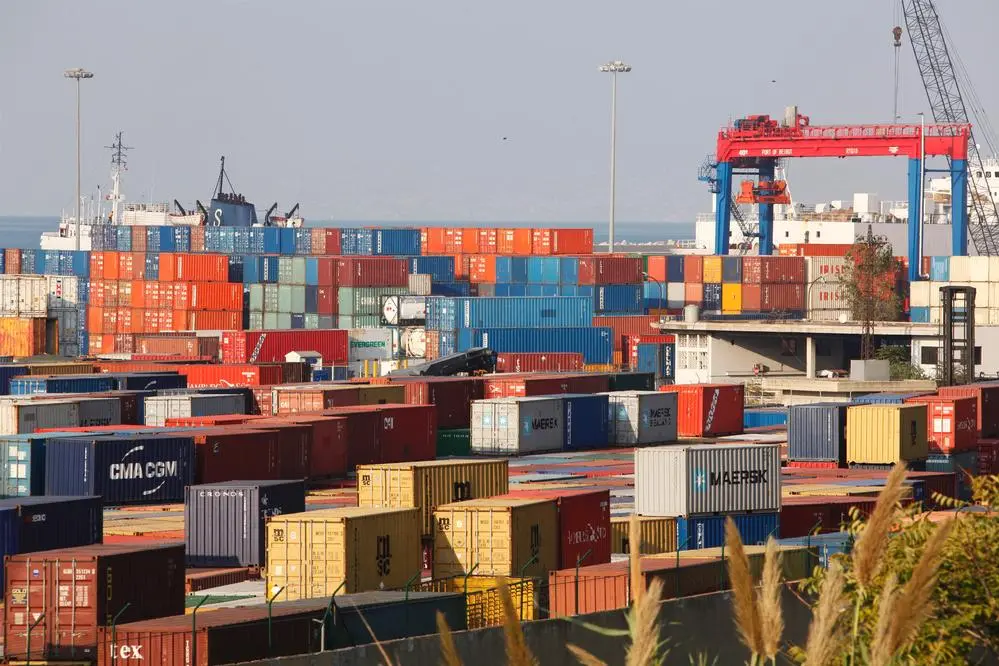PHOTO
A national strategy organizing Lebanon's maritime transport sector is essential
Our maritime trade has, historically, connected East to West, spreading commerce and culture across the Mediterranean Sea. It was towards the end of their centuries-long rule that the Ottomans dug out what today is Beirut's port and, less than a century later, in the 1950s, the Lebanese government built Tripoli's port. Today our harbors are vital to the economy and a strategy is needed to strengthen our connectivity to and positioning among increasingly competitive global markets.
Ships sailing in and out of our ports carrying goods and freight bring us, for example, the latest electronic gadgets that are designed on one side of the planet, manufactured on the other and shipped across vast oceans to our stores and malls. Lowering the cost of maritime trade is and should remain a priority. Over the past decade, freight lines across the world have increased their container capacity, allowing a level of standardization that has transformed the efficiency and speed of maritime trade. At the Beirut Port, this standardization has at least made imports more efficient -- products are cheaper allowing the Lebanese to, as the port's management argues, maintain their purchasing habits. The global goods trade will grow by 4 percent next year, says the World Trade Organization, with a growing share of those goods shipped as containerized cargo. Lebanon's ports must keep up with this trend but building container capacity must also be coordinated.
For our manufacturers, now that land transit across Syria is no longer viable, the ports provide vital access to foreign markets, particularly those in the Gulf. Once the civil war subsides in Syria, our ports could very well be indispensable in the reconstruction that will follow. Syria's plans to expand its ports at Tartus and Latakia are on hold for now, while the links of those ports to Syria's national infrastructure lay in a state of disconnectivity. Tripoli's port might, to a lesser extent, also serve Iraq's reconstruction needs once transit routes reopen.
Much work, however, remains to be done if we are to exploit these future opportunities. Infrastructurally we are weak. The reality is that the port of Beirut is practically isolated from any transportation infrastructure that would make it capable of serving Damascus or Baghdad. The lack of a rail link and the bumper to bumper traffic beginning at the port's roadside entrance will only get worse without a plan for infrastructure investment. Lebanon needs two modern ports at the very least. Tripoli's port may be in the better position geographically to transport goods to our easterly neighbors, but there is neither a national plan to coordinate the ports vis-à-vis each other nor a plan to build the transportation infrastructure needed for this kind of capacity.
If we want our ports to continue to serve the needs of our growing economy over the long term, and of neighboring economies in the medium term, we need a national strategy. This strategy must focus on port integration within the international logistics value chain as well as the interconnectivity of Lebanon's ports with each other. A national strategy should also organize the way our ports are managed -- whether it is full privatization, public-private partnerships, or nationalization -- to maximize sustainable economic returns for the nation as a whole. The Beirut Port's management consists of a temporary body whose mandate was never meant as a permanent solution. A port management that is accountable to the government with clear lines of reporting is a necessary first step in articulating such a national strategy, putting in place processes that contribute to decisionmaking at the ports, like major expansion plans.
A national strategy for our ports must be conceived through a coordinated discussion within the framework of the state. It cannot be left to the private sector, a temporary committee or to any other personal interest to decide. It must be a national debate.
© Executive 2015





















